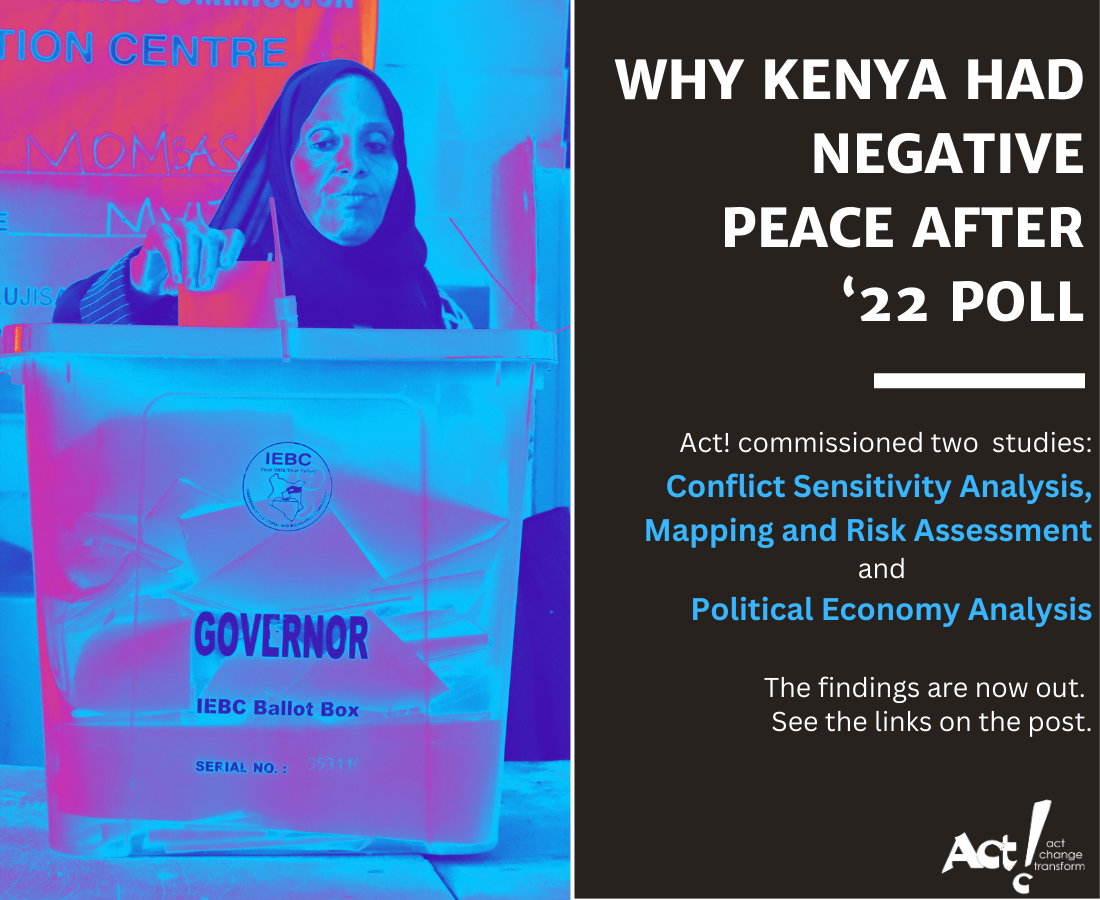The lack of electoral violence in 2022 was not due to conflict transformation, a study shows—rather, it was because of a convergence of factors that created a ceasefire.
These causes included the efforts of electoral institutions and civil society in managing conflicts, voter apathy, and the losing side’s failure to mobilize for mass action.
The study, called “Conflict Sensitivity Analysis, Mapping and Risk Assessment,” also warns that the current situation in Kenya remains volatile, and the lack of violence could turn into unrest.
According to the study, the reason for this is the continuous protests by the Azimio coalition regarding the state of the economy and electoral reforms, as well as the persistent economic crisis.
From March 20-30, 2023, Azimio organized protests every week against the reconstitution of the Independent Electoral and Boundaries Commission (IEBC) and inflation that was out of control. Per media reports, police allegedly shot dead eight people and injured several others, while one police officer died.
Another study, titled “Political Economy Analysis,” revealed that tension is still present due to the results of the 2022 contested election.
These studies were commissioned by Act! between January and April 2023 to identify potential threats to peaceful coexistence.
The “Conflict Sensitivity Analysis, Mapping and Risk Assessment” study suggests that the absence of violence before and after the 2022 elections could be utilized as a means to expand peaceful conditions for the 2027 ballot.
However, according to the “Political Economy Analysis” study, it is still premature to determine if the elite control of IEBC has been disrupted.
“Despite affirmation of the presidential election results by the Supreme Court, governance challenges in IEBC and questions around results processing will linger in the next electoral cycle,” the study says.
According to the “Political Economy Analysis” research, there are still apprehensions regarding the purported control of the Judiciary by the Executive.
“Although the Judiciary is no longer seen to be under siege as it was after the 2017 General Election, the Judiciary is perceived by some to be too “cosy” with the Executive,” the study says.
“Some pundits argue that the 2022 presidential election decision lowered the standard for electoral integrity through the Supreme Court’s insistence on proof that there was malfeasance and that the malfeasance affected the results.”
According to the two studies, Kenya is not entirely facing a negative or hopeless situation. However, they do acknowledge some challenges.
Read the abridged versions of the studies: Conflict Sensitivity Analysis, Mapping and Risk Assessment and Political Economy Analysis.
These full reports are available on request.























